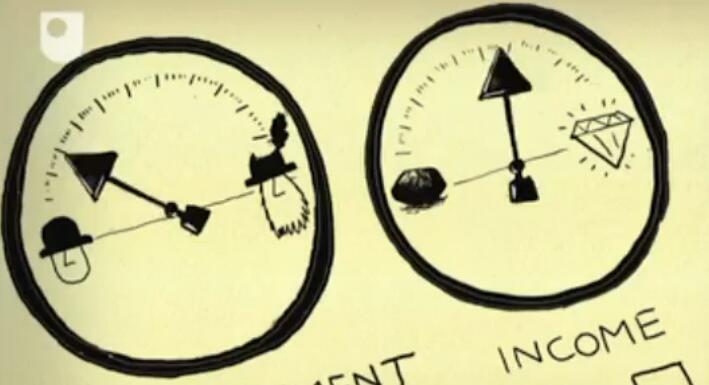60 second adventures in Economics—Number one: The Invisible Hand
《60秒經濟學探奇》 第一節:無形之手
An economy is a tricky thing to control, and governments are always trying to figure out how to do it.
經濟控制起來很棘手,各國政府總在想盡辦法弄清怎么做。
Back in 1776 economist Adam Smith shocked everyone by saying that
1776年,經濟學家亞當?斯密的話震驚了所有人
what governments should actually do is just leave people alone to buy and sell freely among themselves.
他說政府所要做的就是,別插手,讓人們自由進行買賣。
He suggested that if they just leave self-interested traders to compete with one another,
他認為 讓只關注自身利益的交易者相互競爭

markets are guided to positive outcomes 'as if by an invisible hand'.
市場會被引向正途“就像被一只無形之手所引導”。
If someone charges less than you, customers will buy from them instead so you have to lower the price or offer something better.
如果某人賣得比你便宜,顧客會到他那里買所以你需要降低價格,或提供更好產品。
Wherever enough people demand something, they will be supplied by the market
人們需求某種產品時 產品會由市場供給,
like spoilt children—only in this case, everyone's happy.
他們就像受寵的孩子 只有這樣 大家才都開心
Later free-marketeers like Austrian economist Friedrich Hayek,
后期自由市場學者 比如奧地利經濟學家弗里德里希·哈耶克
argued that this 'hands off' approach actually works better than any kind of central plan.
認為“放手”方式比任何中央計劃方式都好。
But the problem is, economies can take a long time to reach their 'equilibrium',
但問題在于 經濟需要很長時間才能達到“均衡”
and may even stall along the way. And in the meantime people can get a little frustrated,
甚至可能在中途停滯。這期間,人們會有些泄氣,
which is why governments usually end up taking things into their own more visible hands instead.
這就是政府經常也會使用其“有形之手”的原因。











